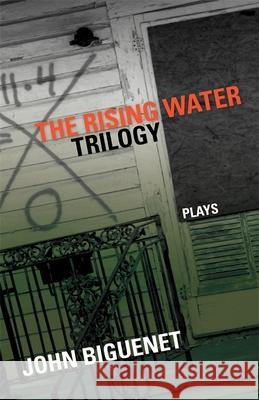The Rising Water Trilogy: Plays » książka
The Rising Water Trilogy: Plays
ISBN-13: 9780807161401 / Angielski / Miękka / 2015 / 240 str.
Widely praised by critics and hailed by audiences, the award-winning plays in John Biguenet's The Rising Water Trilogy examine the emotional toll of Hurricane Katrina and its aftermath. Approaching the storm, the levee collapse, and subsequent socioeconomic catastrophe through the lives of three couples and their families, Biguenet conveys insights into the universal nature of trauma and feelings of loss with heart-wrenching intimacy and palliative humor.
Each play -- Rising Water, Shotgun, and Mold -- incorporates the structure of a house as it examines the anatomy of love, moving from the hours just after the levees' collapse to four months into the flood's chaotic aftermath -- and then to a year later when a family returns to their now mold-encrusted home. In aggregate, these plays employ the seemingly simple act of living together to examine questions of what home truly means. Biguenet also delves into the consequences of living in a city wracked by catastrophe and long-simmering racial tensions, yet so beloved by its inhabitants that even decades of federal neglect and municipal mismanagement cannot erase their emotional attachment to the place and to each other.
Widely praised by critics and hailed by audiences, the award-winning plays in John Biguenets The Rising Water Trilogy examine the emotional toll of Hurricane Katrina and its aftermath. Approaching the storm, the levee collapse, and subsequent socioeconomic catastrophe through the lives of three couples and their families, Biguenet conveys insights into the universal nature of trauma and feelings of loss with heart-wrenching intimacy and palliative humor.Each play-Rising Water, Shotgun, and Mold-incorporates the structure of a house as it examines the anatomy of love, moving from the hours just after the levees collapse to four months into the floods chaotic aftermath-and then to a year later when a family returns to their now mold-encrusted home. In aggregate, these plays employ the seemingly simple act of living together to examine questions of what home truly means. Biguenet also delves into the consequences of living in a city wracked by catastrophe and long-simmering racial tensions, yet so beloved by its inhabitants that even decades of federal neglect and municipal mismanagement cannot erase their emotional attachment to the place and to each other.











